Mobile Application Information Security Course in Delhi
October 8, 2022 2024-10-08 12:37Mobile Application Information Security Course in Delhi
Best Mobile Application Information Security Course in Delhi
Bestseller
3571 Student Reviews
- Course Duration : 60 Hours
- Language : Hindi | English
- Course Delivery : Online | offline

FutureSkills Prime Partner (A MeitY NASSCOM Digital Skilling Initiative)
Accredited by NASSCOM, approved by the Government of India
Book a Trial Demo Class
Training Available 24*7 Call at +91 9513805401
What will you learn in the Mobile Application Information Security Course in Delhi?
Mobile Application Security Course is a combo of several penetration methods, security methods, techniques, and tools to prepare the aspirants to become Certified Mobile Application Security Testing Professionals. However, several institutes are offering mobile application security courses. This course introduces you to several amazing mobile application security concepts totally focused on the fundamentals of mobile application security. In this course, several topics will be explained with the techniques and tools mentioned in the book. Mobile Application Security Training in Delhi will help you fight against online cyber threats prepared by adversaries to attack victimized applications.
Mobile Application Security Course Content
Lesson 01: Scope
Lesson 02: Methodology
Lesson 03: Tools
Lesson 01: Kali lab setup
Lesson 02: Burp suite setup
Lesson 03: Mobile penetration testing lab setup
Lesson 01: Layers of Android architecture
Lesson 02: Key Components
Lesson 03: Application lifecycle
Lesson 04: Security Model
Lesson 01: Core components
Lesson 02: Common file structure patterns
Lesson 03: File structure example
Lesson 01: Overviews
Lesson 02: Functionality
Lesson 03: Installation
Lesson 04: Usage
Lesson 05: Common usage case
Lesson 01: Overviews
Lesson 02: Functionality
Lesson 03: Installation and setup
Lesson 04: Feature and Capabilities
Lesson 05: Scan the app with mobsf
Lesson 01: Types of static analysis
Lesson 02: Tools and techniques
Lesson 03: Benefits
Lesson 04: How to perform static analysis
Lesson 01: Overviews
Lesson 02: Dynamic analysis
Lesson 03: Injection attacks
Lesson 04: Exploitation
Lesson 01: Definition
Lesson 02: attacks
Lesson 03: Impact
Lesson 04: Mitigation
Lesson 05: Tools and resources
Lesson 01: Definition
Lesson 02: Storing passwords in plain text
Lesson 03: Unprotected databases
Lesson 04: Impact
Lesson 05: Mitigation
Lesson 06: Tools and resources
Lesson 01: Definition
Lesson 02: Unencrypted protocols
Lesson 03: Missing or misconfigured SSL/TLS
Lesson 04: Impact
Lesson 05: Mitigation
Lesson 06: Tools and resources
Lesson 01: Definition
Lesson 02: Weak password policies
Lesson 03: Lack of multi-factor authentication
Lesson 04: Impact
Lesson 05: Mitigation
Lesson 06: Tools and resources
Lesson 01: Common vulnerability
Lesson 02: Impact
Lesson 03: Prevention and Mitigation
Lesson 04: Continuous monitoring and updates
Lesson 01: Common vulnerability
Lesson 02: Impact
Lesson 03: Prevention and Mitigation
Lesson 01: Important of client code quality
Lesson 02: Code structure and Organization
Lesson 03: Readability and Maintainability
Lesson 01: Objective
Lesson 02: Techniques
Lesson 03: Detection and Prevention
Lesson 04: Implications
Lesson 01: Purpose
Lesson 02: Techniques
Lesson 03: Tools
Lesson 04: Reversing Malware
Lesson 01: Security risks
Lesson 02: User Experience (UX) issues
Lesson 03: Code review and refactoring
Lesson 04: Automated Analysis tools
Lesson 01: Public key Pinning
Lesson 02: Certificate Pinning
Lesson 03: Benefits of SSL pinning
Lesson 04: Certificate Authority (CA)
Lesson 01: Packet Capture
Lesson 02: Network sniffing
Lesson 03: Protocol Analysis
Lesson 04: Traffic Decryption
Lesson 01: Introduction to Dynamic Analysis
Lesson 02: How to perform dynamic analysis
Lesson 03: Dynamic Debugging
Lesson 04: Dynamic Decomplication
Lesson 01: Consider the objective of the report
Lesson 02: The test compiles a comprehensive report
Lesson 03: Detailing their findings of vulnerability
Lesson 01: Introduction to IOS Penetration testing
Lesson 02: IOS structure
Lesson 03: How to secure you application
Lesson 01: Proof of Concept (POC)
Lesson 02: Executive and Management Report
Lesson 03: Technical Report For IT and security department
Mobile Application Security Our Course Advisor
[popup_anything id=”116469″]
Mobile Application Security Testing Course
Mobile Applications have become one of the mediums through which organizational members can share crucial data with each other. However, even though it made data management easy for the organization, it opened up the doors for adversaries to steal data without getting into the eyes of security measures. How could you save yourself from such attacks? For that, you need the skills of a Mobile Application Security Expert. But if you’re not that expert, you must find someone who can teach you how to obtain such skills and knowledge. For that, you can join Mobile Application Security Course in Delhi.
Suppose you have created your Mobile Application and need to ensure that your application is running properly. Moreover, even if the application is working properly, security measures need to be taken carefully. To hold your head high, you need to do a proper check over your application and ensure that the security measures are done with professional techniques. Mobile App Security Training from Craw Security could lend you the needed resources to ensure the possibility of a strict security advancement. Via such skills, techniques, and tools, you’ll be able to maintain the security of your Smart Devices and Applications. Craw Security offers you support from professional and experienced trainers for Mobile Application Security Training in Delhi.
6 Month Diploma Courses
Choose Your Preferred Learning Mode

Classroom Training
We offer customized VILT (Virtual Instructor-Led Training) sessions at your convenient hours to provide effortless training.

Online Training Class

Corporate Training
Hire a preferred trainer at your work premises at your chosen time slots and train your employees with full efficiency.
Mobile Application Security Course Description
Well, now that you know about these skills. But do you know what to do while applying for any post related to such skills in companies? If not, then you should hear this. Mobile Application Pentesting can help organizations to work more efficiently on their application building. This Mobile Security Certification Course will help you gain more trust from organizations that proves you are a professional mobile security expert who knows about Mobile Application Security Protocols. This certification is valid in several MNCs and will allow you to get a reputed designation in a reputed company. Then, what are you waiting for? Apply for it now!
Well, many of you must be living outside Delhi and have been searching for such courses for a long time near you. For that, we want to say that now you can leave your stress out of your doorstep. Craw Security is offering the Application Security Online Training Courses to students living outside Delhi for the welfare of those keen to learn something new and want to make a career in it. Contact us for more information.
Several Mobile Application Security Course Tools are introduced to students by Craw Security that are as follows:
● Apktool,
● JADX,
● JD-GUI,
● Dex2Jar,
● Bytecode-viewer,
● Androguard,
● Androbug,
● Mob-SF,
● MARA Framework,
● Drozer,
● Burp Suite Professional,
● Burp Suite Mobile Assistant,
● Objection,
● QARK,
● Frida, etc.
Well, if you want to learn such skills you must get introduced to the needs for which such skills are used. Those are as follows:
● Secure Mobile applications Security from specialized and business rationale viewpoints.
● Distinguish business rationale and specialized weaknesses in your Mobile application’s security.
● Understand real-world attack techniques.
● Catch the business rationale stream of the Mobile Application Security.
● Distinguish the application’s weaknesses that can be abused utilizing introduced applications on cell phones.
● Evaluate cell phone security issues.
● Test and find weaknesses present in cell phones, Mobile applications, workers, and the organization.
Craw Security's Students Awarded

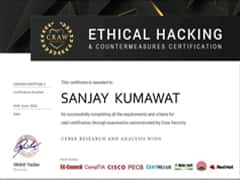

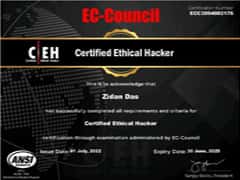
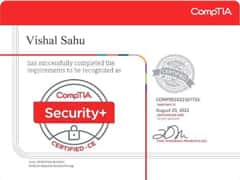
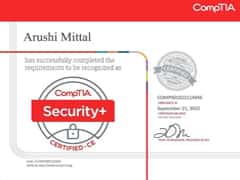




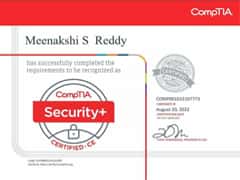
Who should do this Mobile Application Security Course in Delhi?
Well, there are no prerequisites while joining the Mobile Application Security Course via Craw Security which is reliable for students for a long time. For your doubts we would say the following learners are mostly interested people who search for such courses:
● Security Enthusiasts,
● IT professionals, and
● Mobile Application Developers to know mobile application security issues.
Related Cyber Security Course
What People Are Saying About Craw Security
Google Review (3,756) ★★★★★






Mobile Application Security Frequently Asked Questions
There are many security techniques available that can be employed to safeguard an application with the safest methods such as the following:
• Source Code Encryption
• Penetration Tests – Perform a Thorough QA & Security Check
• Secure the Data-in-transit
• File-Level & Database Encryption
• Employing the Latest Cryptography Techniques
• High-level Authentication
• Secure the Backend
• Minimize Storage of Sensitive Data
One can understand the widely-known mobile application security threats as follows:
• Insecure Communication
• Lack of Input Validation
• Insecure Data Storage
• Client Code Security
• Insufficient Authentication and Authorization Controls
• Poor Encryption
• Reverse Engineering
Since all the major and minor websites are becoming mobile-friendly and bringing their hard-earned database to the mobile applications’ interfaces, they are becoming the prime targets of the illicit hackers who have ill intentions to steal all the sensitive and crucial information encrypted in the servers of those concerning mobile applications.
We can genuinely say that there are multiple kinds of databases stored in the respective servers of mobile applications such as personal files, banking credentials, sensitive customer information, and many more which can single data breach can compromise.
There are certain practices that one can employ in order to confirm the security status of one’s android device’s applications to some certain level. Some of them are defined below:
• Always install apps from secured and authorized sections such as Play Store, App Store, etc.
• Always give permissions to the apps after reading the T&C sections so precisely which may contain some unwanted access to the application which may lead to data theft or anything more malicious.
• Never use public Wi-Fi which may give unauthorized access to the malicious actors to your android devices.
• Secure your android device from proper password/ pin protection. One may also use the Iris scanner or voice scanner in order to confirm the identity of the intended user.








